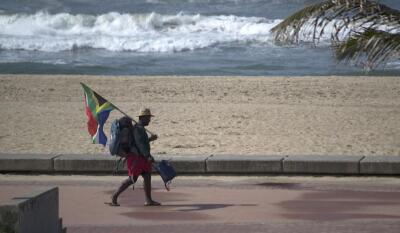In a nation once defined by systemic segregation, the latest South African Reconciliation Barometer (SARB) reveals significant changes in interracial interactions and the complex path towards reconciliation in post-apartheid South Africa.
The 2023 South African Reconciliation Barometer uncovers evolving dynamics in racial interactions and the nation’s journey towards reconciliation, amidst challenges of trust, inequality, and the legacy of apartheid.
As South Africa marks Reconciliation Day on Saturday, the 2023 South African Reconciliation Barometer (SARB) has shown a gradual increase in interracial interactions among South Africans, although deep-seated challenges remain in forming deeper personal relationships across racial lines.
The SARB is one of South Africa’s longest-running public opinion surveys, first conducted by the Institute for Justice and Reconciliation (IJR) in 2003.
This year marks the 20th anniversary of the report, which contains current results on citizens’ attitudes towards the upcoming 2024 elections as well as democratic governance, social cohesion, economic transformation, and national reconciliation.
The 2023 report shows a gradual increase in interracial interactions among South Africans, although deep-seated challenges remain in forming deeper personal relationships across racial lines.
In the early 2000s, only 15% of black South Africans reported frequent interactions with people of other races, a figure significantly lower than that reported by other racial groups. By 2023, this number had more than doubled to 37%, indicating a positive trend, albeit still lower than other groups. Notably, white South Africans reported a decrease in such interactions over the past decade.
The barometer also delves into the meanings and experiences of reconciliation. In recent years, the predominant association with reconciliation has shifted from forgiveness to peace. While there is consensus on the need for continued reconciliation, opinions vary on the progress made so far.
Identifying barriers to reconciliation, the survey found that black South Africans primarily view poverty and inequality as the largest obstacles, while racism is seen as a significant barrier across other racial groups. These findings highlight the intertwined nature of economic disparities and racial tensions in the country’s reconciliation process.
The concept of social cohesion was introduced in the 2023 Barometer, reflecting on the deep distrust that persists within South African society.
Trust levels are low across various social groups, with the least trust extended towards migrants from other African countries.
Despite this distrust, there is a strong sense of identity association based on language and race.
Interestingly, the Barometer finds a resilient national identity among South Africans, with a majority across all racial groups identifying strongly as South African. This sense of national identity coexists with perceptions of the country as divided, primarily due to socio-economic disparities.
Economic challenges remain a significant concern, with less than half of South Africans feeling financially better off than in the past. The slow pace of economic change and persistent inequality are viewed as major sources of division within the country.
In terms of their future outlook, South Africans show moderate optimism about improvements in relationships between people, including reconciliation and respect for languages and cultures. However, expectations are lower for improvements in governance areas such as inequality and corruption.
Kate Lefko-Everett, who headed the Reconciliation Barometer Project, said that in the two decades since she first started working in the Barometer, there were now more born-free South Africans than people who have lived experience and memory of apartheid.
“And the way we think about the idea of reconciliation, the currency, that term has changed,” she said.
“It doesn’t necessarily mean the same thing to everybody today as it did 20 years ago, but I think the survey provides really clear evidence that there are still areas where we need to work on improving, and we almost surprisingly, I will say, found a really strong foundation amidst very real, very pressing challenges and crises. I think people are tired of load shedding every day and the continual rise in the cost of living. It’s a challenging moment to be living in. So it’s wonderful that we have that strong foundation, that strong, collective sense of unity and social cohesion and optimism about building at the same time,” she said.
Another contributor to the survey, Professor Rajen Govender of the University of Cape Town, agreed.
“South Africans are by nature extremely resilient; we’ve overcome considerable odds in the past, and we’re likely to do so in the future as well. I guess our biggest test is whether we are resilient enough to overcome the deficiencies and shortcomings of the people we elect to actually represent us. And in that event, which appears to be where we are currently, we have the strength and resilience to find alternate ways to move forward with representation and with governance in the country,” he said.
Govender said that civil society was becoming more engaged, which has led to finding alternatives for how we can govern the country.
IOL News

